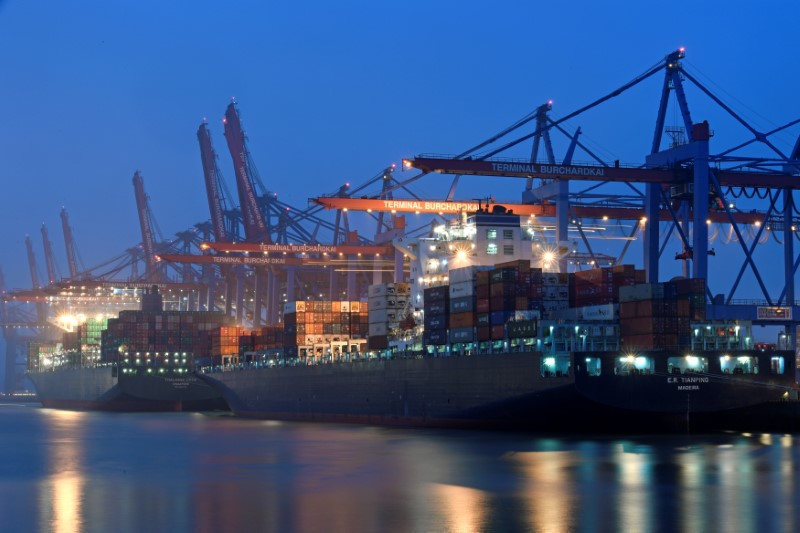BERLIN (Reuters) - The new U.S. administration should keep its international obligations and common trade rules in mind when overhauling its tax code to favour exports over imports, senior European and German government officials said on Tuesday.
Seeking to put "America first", U.S. President Donald Trump has already pulled out of one major trade agreement and proposed a border tax on imports, arguing that certain trade relationships need to be reshaped to make them fairer for U.S. workers.
"The European Commission expects all trade partners to stick to international rules and obligations to which they committed, especially under the framework of the World Trade Organisation," a senior European Union official said, referring to U.S. proposals to introduce a border adjustment tax.
The EU official, who spoke on condition of anonymity, pointed to the WTO requirement to avoid any form of discrimination in trade relations.
Germany Deputy Economy Minister Matthias Machnig urged the new U.S. administration to abide by the rules under the WTO framework.
"The mechanism of dispute settlement within the WTO is a crown jewel which is worth protecting and without which the 'law of the jungle' would become more important in international trade," Machnig told the Frankfurter Allgemeine Zeitung newspaper.
"We hope that the important advocate of free trade, the United States, will not fail," Machnig added.
Economy Minister Brigitte Zypries has told the United States that Berlin could file a suit against Washington at the WTO over Trump's proposed border tax on certain imports.
Reflecting the new U.S. administration's biggest point of friction yet with the international community, the world's financial leaders on Saturday failed to reaffirm a joint pledge in their final G20 communique to resist all protectionism.
Most G20 members made clear during the discussions in the German town of Baden-Baden that they supported a free, multi-lateral and rules-based trade order, according to participants.
U.S. Treasury Secretary Steven Mnuchin had suggested a looser wording supporting a free and fair trade order.

The final communique included only a token reference to trade and its importance for economies.